

Egg-cellent Taste!
|
Many would agree that eggs are one of the most versatile ingredients out there. We can enjoy them boiled, fried, scrambled, steamed, or mixed together with other ingredients for even more possibilities. But what about enjoying them raw? You may notice that raw eggs appear more frequently on a Japanese menu compared to elsewhere. This might come as a culture shock to others, as eating eggs without cooking them is considered dangerous due to the risk of salmonella infection or other bacteria. In other words, you could end up with food poisoning. So what is different about Japanese eggs?
In Japan, extensive measures are taken to ensure that eggs are safe to eat raw, even without breaking the shell. For instance, highly advanced machines are used to clean the eggs, check their quality, sort them by size and package them. From the beginning, the eggs are all positioned with their pointed ends down, so that the yolk does not come into contact with the shell. This is because the egg shell is most likely affected by bacteria, thus it is important to for the yolk to keep a good distance from it. Another step is to check that there are no cracks in the shell. Multiple tiny hammers gently tap; or rather brush the eggs as they make their way along the conveyor belt. If the sound is muffled and dull, there may be problems. While it is not a fool proof method as every egg varies in size and shell thickness, such technology can detect cracks with about 95% accuracy. Eggs with bloodspots are also checked for and filtered out. While it is not exactly dangerous to consume such eggs, they are considered unfit for human consumption in Japan. The machine conducts a spectroscopic analysis of the light as it passes through the shell, and studies the wavelength of the light to check if any is being absorbed by blood. One can imagine how careful the machines handle the eggs, in order for the eggs to receive no shock throughout the whole process. Japanese eggs typically have an expiration date of two weeks. This means that they can safely be eaten raw for two weeks, and still eaten if thoroughly cooked after the two weeks. This is unlike other countries, which indicate an expiration date based on the assumption that the eggs are not eaten raw. In terms of nutrients, it is said that raw egg yolks have higher nutrient density, such as vitamin A, B and D, as opposed to cooked eggs, as these vitamins are broken down when heated. That being said, one should always remember to eat in moderation. It seems that Japanese people started to consume raw eggs around the Meiji period, with the introduction of the popular dish, tamago kake gohan. This simple dish of raw egg on rice, seasoned with soy sauce, is usually eaten in the morning. Other dishes with raw eggs that appeared afterwards include kamatama udon (raw egg topped on udon), sukiyaki (cooked meat and vegetables are dipped in raw beaten egg), and even beef or seafood rice bowls topped with raw egg. You may be surprised by the variety of Japanese eggs available all over Japan, there is even a “rice egg” variety which possesses white egg yolks! Unfortunately, a number of restaurants and convenience stores in Japan have recently suspended eggs from their menus, due to egg shortage caused by a bad outbreak of bird flu. Besides that, prices have increased on the whole too. At the moment, you might have to pay a bit more in return for eating Japanese eggs. |
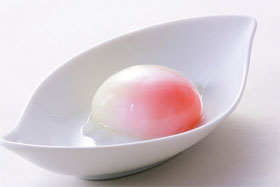 © Web Japan 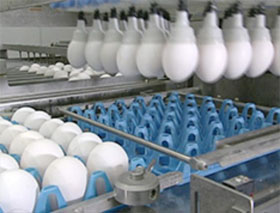 © Nabel 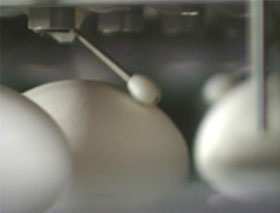 © Nabel 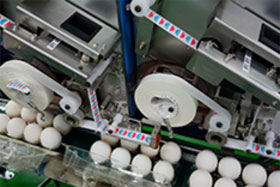 © Hans Sautter 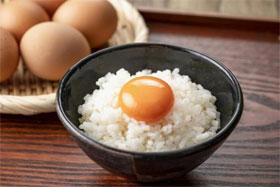 © photoAC |
Resources
|
”Japan’s Super Egg Machine”. 2011. Kids Web Japan. Accessed 22 May. https://web-japan.org/kidsweb/hitech/egg/index.html. Ngyuen, Loan. 2022. “Enjoying Raw Egg the Japanese Way With Egg Specialists Kisaburo Nojo!”. tsunagu Japan. https://www.tsunagujapan.com/how-to-eat-deliciously-japanese-raw-eggs/. “Why do Japanese people like to eat raw egg?”. 2019. IKIDANE NIPPON. https://press.ikidane-nippon.com/en/a00620/. Lee, Amanda. 2023. “Eggs off some menus in Japan as country hit by bird flu and egg shortage”. The Straits Times. https://www.straitstimes.com/asia/east-asia/eggs-off-some-menus-in-japan-as-country-hit-by-bird-flu-and-egg-shortage. |
|
Japan Creative Centre 4 Nassim Road, Singapore 258372 +65 6737 0434 / jcc@sn.mofa.go.jp https://www.sg.emb-japan.go.jp/JCC/ Nearest parking at Orchard Hotel & Delphi Orchard |
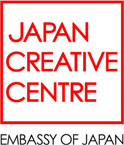 |